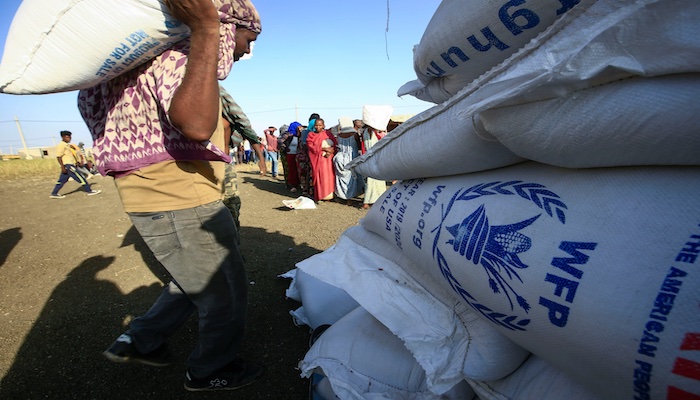
In a bid to combat one of the world’s most pressing food security crises, the United Nations World Food Programme (WFP) has allocated $2.5 billion to Nigeria through its 2023-2027 Nigeria Country Strategy Plan (CSP).
The five-year initiative aims to eradicate hunger, improve nutrition, and provide a robust emergency response to the country’s ongoing food insecurity issues. Announced at a co-creation workshop in Abuja, the funding has sparked both hope and skepticism as millions of Nigerians continue to face severe food shortages.
The WFP’s Nigeria Country Strategy Plan outlines a multifaceted approach, built on five key pillars: food security, nutrition improvement, crisis preparedness, supply chain fortification, and food technology. Designed to align with the United Nations’ Sustainable Development Goals (SDGs) 1 and 2—focused on eliminating poverty and hunger—the initiative is a response to the increasing number of Nigerians struggling to access sufficient food.
Register for Tekedia Mini-MBA edition 19 (Feb 9 – May 2, 2026).
Register for Tekedia AI in Business Masterclass.
Join Tekedia Capital Syndicate and co-invest in great global startups.
Register for Tekedia AI Lab.
“We aim to ensure that no one goes to bed hungry,” said Mr. Seriene Loum, Head of Programme at WFP Nigeria, speaking at the workshop. “Our goal is to help mobilize resources and partner with the Nigerian government to implement the plan fully.”
A Pattern of Unmet Expectations
However, despite the promise of large-scale investment, the WFP’s intervention has raised concerns about its potential effectiveness. Nigeria, despite being one of the largest recipients of food security aid in Africa, continues to face worsening hunger and poverty.
The Cadre Harmonisé report, published in October 2024, estimates that 25 million Nigerians currently face acute food insecurity, with projections that the number will rise to 33 million between June and August 2025. This crisis has fueled doubts about the country’s ability to translate large financial injections into tangible improvements.
The Nigerian government has made several attempts to tackle food insecurity through agricultural support schemes such as the Anchor Borrowers’ Programme (ABP), designed to provide loans (in kind and cash) to smallholder farmers to boost agricultural production, create jobs, and reduce food import bill towards conservation of foreign reserve.
Apparently, while these programs have had some success, they have not sufficiently addressed the structural issues that perpetuate food insecurity in Nigeria. The reasons have been attributed to insecurity, corruption, economic instability, and poor agricultural infrastructure. Furthermore, the country’s ban on food imports has only compounded the crisis.
Against this backdrop, Prof. Badamasi Lawal, CEO of N-SIPA, acknowledged the importance of international partnerships in addressing Nigeria’s hunger crisis.
“The WFP’s expertise in food security, nutrition, and emergency response will be invaluable in strengthening our efforts,” Lawal said. “This collaboration demonstrates the power of international cooperation in building a more equitable and prosperous society.”
Although many see the new WFP initiative as a critical step toward addressing Nigeria’s hunger problem, experts argue that it will take more than just funding. Structural changes to Nigeria’s agricultural sector, including improved farming techniques, climate adaptation strategies, and better food distribution systems, have been advocated.
Mrs. Uche Obi, Director of Human Resources Management at N-SIPA, agrees with these assertions.
“The WFP’s expertise in food security, nutrition, and emergency response will strengthen Nigeria’s ability to create sustainable solutions to hunger,” she said.
However, this requires a more concerted effort from the Nigerian government to prioritize agriculture, invest in rural communities, and create a resilient food system that can withstand economic volatility.



